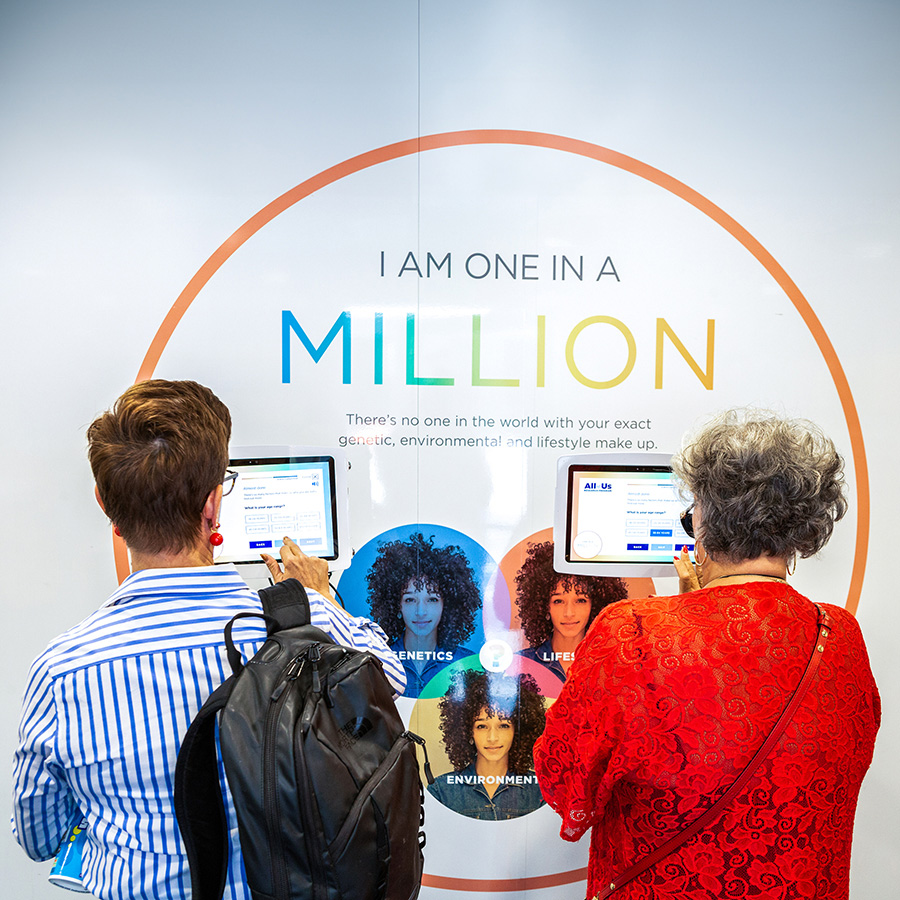
Community partnerships have been a gateway to advancing medical research in communities
Nearly 40,000 All of Us Research Program participants identify as LGBTQIA+, contributing data for health research. This community has come together to share their health story with the program. The strong representation of this community makes the National Institutes of Health’s All of Us Research Program the largest and most accessible data from LGBTQIA+ people for health research.
“The fact that the program is even asking about gender identity and sexual orientation from one million people is historic,” said Mitchell R. Lunn, MD, MAS, FACP, FASN, associate professor of medicine and of epidemiology and population health at Stanford University School of Medicine. Dr. Lunn also serves as co-director of PRIDEnet, an All of Us national community engagement partner focused on engaging members of the LGBTQIA+ community. “These data provide researchers the opportunity to better understand the health needs and experiences of communities.”
PRIDEnet is a national network dedicated to strengthening the involvement of LGBTQIA+ people in health research. A project of Stanford University School of Medicine in partnership with the University of California, San Francisco, PRIDEnet’s footprint spans the country and includes partner organizations, community groups, and research properties.
“PRIDEnet is working to address the barriers between LGBTQIA+ people and their willingness to participate in health research due to historical transgressions,” said Dr. Lunn. “Across the country, our team has built trust and partnerships to help address the health inequities that have stemmed from being left out of medical research.”
To help build trust, PRIDEnet has invested heavily in working in partnership with LGBTQIA+ communities, supporting an advisory board and ambassadors, and reviewing educational and promotional materials to ensure transparency and cultural competence.
One of those participants includes Daniel G. Garza. Garza, an All of Us Research Program participant ambassador, joined the program after receiving an anal cancer misdiagnosis, which prompted him to better understand his own health.
“I wanted to know everything I could to see if there was a history of cancer in my family,” said Garza. “Because my parents’ health records were nonexistent, and because it’s difficult to find health information specific to being Latino and gay, I want to know everything – and help people like me better understand themselves. Relying on organizations like All of Us helps to put our DNA story back together. And for LGBTQIA+ people who are adopted, shunned or have no idea of their medical histories, this program gives us the opportunity to put the pieces of the puzzle together.”
The All of Us Research Program aims to enroll more than 1 million people living in the United States in an effort to create one of the most diverse health databases of its kind with the goal of improving health care for all. Those who want to learn more about participation and how they can help advance research can visit JoinAllofUs.org.
Researchers can register to begin using the All of Us dataset at ResearchAllofUs.org.
